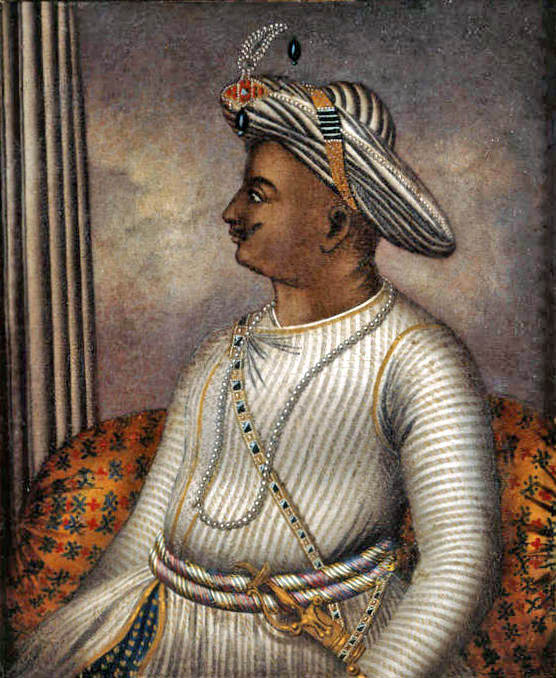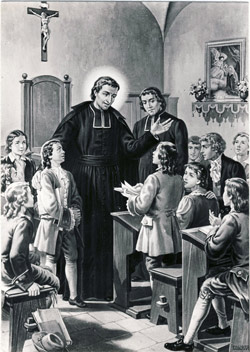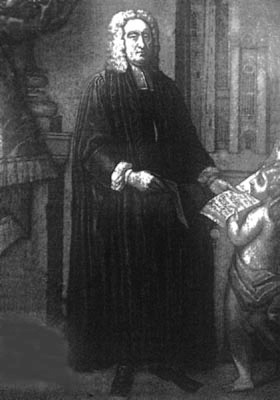|
Frances Thynne, Lady Worsley
Frances Thynne, Lady Worsley (''née'' Thynne, 1673 – 1750) was an English noblewoman connected to several poets of the Augustan literature, Augustan era. She was one of three children of Thomas Thynne, 1st Viscount Weymouth, and his wife Frances, ''née'' Finch. In 1690 she married Sir Robert Worsley, 4th Baronet, Sir Robert Worsley, 4th baronet. They had one daughter, Frances, Lady Carteret. They lived at Appuldurcombe House, Appuldurcome House, Isle of Wight, which Sir Robert began rebuilding in 1702. Poetic connections Lady Worsley's maternal aunt was Anne Finch, Countess of Winchilsea, Anne Finch, who wrote poems about her and her siblings. She held a long-running correspondence with Finch and with Jonathan Swift, who held her in high regard. Her daughter Frances would continue this friendship with Swift. Alexander Pope's poem 'Epistle to Mr Jervas' contains the line 'Other beauties envy Worsley's eyes,' referring to Lady Frances Worsley. However, this compliment was o ... [...More Info...] [...Related Items...] OR: [Wikipedia] [Google] [Baidu] |
Sir Robert Worsley, 4th Baronet
Sir Robert Worsley, 4th Baronet (c. 1669–1747), was a British politician who sat in the British House of Commons, House of Commons from 1715 to 1722. Worsley was the eldest son of Sir Robert Worsley, 3rd Baronet, MP of Appuldurcombe, and his wife Mary Herbert, daughter of Hon. James Herbert of Kingsey, Buckinghamshire. In 1676, aged seven, he succeeded to the Worsley baronets, baronetcy and the manor of Appuldurcombe on the death of his father. He matriculated at Christ Church, Oxford, on 17 December 1684, aged 15. He married by licence dated 13 August 1690 Frances Thynne, Lady Worsley, Frances Thynne, daughter of Thomas Thynne, 1st Viscount Weymouth, of Longleat, Wiltshire. Worsley was Deputy Lieutenant of Hampshire from 1699 to 1702. In 1702, he started rebuilding Appuldurcombe House which had been in his family since 1527. The architect was John James (architect), John James. Worsley had an interest at the parliamentary seat of Newtown (UK Parliament constituency), Newtown ... [...More Info...] [...Related Items...] OR: [Wikipedia] [Google] [Baidu] |
Lady Mary Wortley Montagu
Lady Mary Wortley Montagu (née Pierrepont; 15 May 168921 August 1762) was an English aristocrat, medical pioneer, writer, and poet. Born in 1689, Lady Mary spent her early life in England. In 1712, Lady Mary married Edward Wortley Montagu, who later served as the British ambassador to the Sublime Porte. Lady Mary joined her husband on the Ottoman excursion, where she was to spend the next two years of her life. During her time there, Lady Mary wrote extensively on her experience as a woman in Ottoman Constantinople. After her return to England, Lady Mary devoted her attention to the upbringing of her family before dying of cancer in 1762. Although having regularly socialised with the court of George I and George Augustus, Prince of Wales (later King George II) , Lady Mary is today chiefly remembered for her letters, particularly her '' Turkish Embassy Letters'' describing her travels to the Ottoman Empire, as wife to the British ambassador to Turkey, which Billie Melman ... [...More Info...] [...Related Items...] OR: [Wikipedia] [Google] [Baidu] |
18th-century English Nobility
The 18th century lasted from 1 January 1701 (represented by the Roman numerals MDCCI) to 31 December 1800 (MDCCC). During the 18th century, elements of Enlightenment thinking culminated in the Atlantic Revolutions. Revolutions began to challenge the legitimacy of monarchical and aristocratic power structures. The Industrial Revolution began mid-century, leading to radical changes in human society and the environment. The European colonization of the Americas and other parts of the world intensified and associated mass migrations of people grew in size as part of the Age of Sail. During the century, slave trading expanded across the shores of the Atlantic Ocean, while declining in Russia and China. Western historians have occasionally defined the 18th century otherwise for the purposes of their work. For example, the "short" 18th century may be defined as 1715–1789, denoting the period of time between the death of Louis XIV of France and the start of the French Revoluti ... [...More Info...] [...Related Items...] OR: [Wikipedia] [Google] [Baidu] |
17th-century English Nobility
The 17th century lasted from January 1, 1601 (represented by the Roman numerals MDCI), to December 31, 1700 (MDCC). It falls into the early modern period of Europe and in that continent (whose impact on the world was increasing) was characterized by the Baroque cultural movement, the latter part of the Spanish Golden Age, the Dutch Golden Age, the French '' Grand Siècle'' dominated by Louis XIV, the Scientific Revolution, the world's first public company and megacorporation known as the Dutch East India Company, and according to some historians, the General Crisis. From the mid-17th century, European politics were increasingly dominated by the Kingdom of France of Louis XIV, where royal power was solidified domestically in the civil war of the Fronde. The semi-feudal territorial French nobility was weakened and subjugated to the power of an absolute monarchy through the reinvention of the Palace of Versailles from a hunting lodge to a gilded prison, in which a greatly expan ... [...More Info...] [...Related Items...] OR: [Wikipedia] [Google] [Baidu] |
18th-century English Women
The 18th century lasted from 1 January 1701 (represented by the Roman numerals MDCCI) to 31 December 1800 (MDCCC). During the 18th century, elements of Enlightenment thinking culminated in the Atlantic Revolutions. Revolutions began to challenge the legitimacy of monarchical and aristocratic power structures. The Industrial Revolution began mid-century, leading to radical changes in human society and the environment. The European colonization of the Americas and other parts of the world intensified and associated mass migrations of people grew in size as part of the Age of Sail. During the century, slave trading expanded across the shores of the Atlantic Ocean, while declining in Russia and China. Western historians have occasionally defined the 18th century otherwise for the purposes of their work. For example, the "short" 18th century may be defined as 1715–1789, denoting the period of time between the death of Louis XIV of France and the start of the French Revoluti ... [...More Info...] [...Related Items...] OR: [Wikipedia] [Google] [Baidu] |
17th-century English Women
The 17th century lasted from January 1, 1601 (represented by the Roman numerals MDCI), to December 31, 1700 (MDCC). It falls into the early modern period of Europe and in that continent (whose impact on the world was increasing) was characterized by the Baroque cultural movement, the latter part of the Spanish Golden Age, the Dutch Golden Age, the French '' Grand Siècle'' dominated by Louis XIV, the Scientific Revolution, the world's first public company and megacorporation known as the Dutch East India Company, and according to some historians, the General Crisis. From the mid-17th century, European politics were increasingly dominated by the Kingdom of France of Louis XIV, where royal power was solidified domestically in the civil war of the Fronde. The semi-feudal territorial French nobility was weakened and subjugated to the power of an absolute monarchy through the reinvention of the Palace of Versailles from a hunting lodge to a gilded prison, in which a greatly expan ... [...More Info...] [...Related Items...] OR: [Wikipedia] [Google] [Baidu] |
1750 Deaths
Various sources, including the Intergovernmental Panel on Climate Change, use the year 1750 as a baseline year for the end of the pre-industrial era. 1750 is commemorated as the year that started the Industrial Revolution, although the underpinnings of the Industrial Revolution could have started earlier. Events January–March * January 13 – The Treaty of Madrid between Spain and Portugal authorizes a larger Brazil than had the Treaty of Tordesillas of 1494, which originally established the boundaries of the Portuguese and Spanish territories in South America. * January 24 – A fire in Istanbul destroys 10,000 homes. * February 15 – After Spain and Portugal agree that the Uruguay River will be the boundary line between the two kingdoms' territory in South America, the Spanish Governor orders the Jesuits to vacate seven Indian missions along the river (San Angel, San Nicolas, San Luis, San Lorenzo, San Miguel, San Juan and San Borja). * March 5 &nd ... [...More Info...] [...Related Items...] OR: [Wikipedia] [Google] [Baidu] |
1673 Births
Events January–March * January 22 – Impersonator Mary Carleton is hanged at Newgate Prison in London, for multiple thefts and returning from penal transportation. * February 10 – Molière's '' comédie-ballet'' '' The Imaginary Invalid'' premiers in Paris. During the fourth performance, on February 17, the playwright, playing the title rôle, collapses on stage, dying soon after. * March 29 – Test Act: Roman Catholics and others who refuse to receive the sacrament of the Church of England cannot vote, hold public office, preach, teach, attend the universities or assemble for meetings in England. On June 12, the king's Catholic brother, James, Duke of York, is forced to resign the office of Lord High Admiral because of the Act. April–June * April 27 – '' Cadmus et Hermione'', the first opera written by Jean-Baptiste Lully, premières at the Paris Opera in France. * May 17 – In America, trader Louis Joliet and Jes ... [...More Info...] [...Related Items...] OR: [Wikipedia] [Google] [Baidu] |
Alexander Pope
Alexander Pope (21 May 1688 Old Style and New Style dates, O.S. – 30 May 1744) was an English poet, translator, and satirist of the Age of Enlightenment, Enlightenment era who is considered one of the most prominent English poets of the early 18th century. An exponent of Augustan literature, Pope is best known for his satirical and discursive poetry including ''The Rape of the Lock'', ''The Dunciad'', and ''An Essay on Criticism,'' and for his translations of Homer. Pope is often quoted in ''The Oxford Dictionary of Quotations'', some of his verses having entered common parlance (e.g. "damning with faint praise" or "An Essay on Criticism, to err is human; to forgive, divine"). Life Alexander Pope was born in London on 21 May 1688 during the year of the Glorious Revolution. His father (Alexander Pope, 1646–1717) was a successful linen merchant in the Strand, London. His mother, Edith (née Turner, 1643–1733), was the daughter of William Turner, Esquire, of York. Both pare ... [...More Info...] [...Related Items...] OR: [Wikipedia] [Google] [Baidu] |
Frances, Lady Carteret
Frances Carteret, Lady Carteret (''née'' Worsley, 6 March 1694 – 20 June 1743) was an English noblewoman who served as the vicereine of Ireland. Known as a popular hostess, she was the subject of poetry by Jonathan Swift and Patrick Delany. Family Frances was the daughter of Sir Robert Worsley, 4th Baronet of Appuldurcombe, Isle of Wight, and his wife Frances Thynne, daughter of Thomas Thynne, 1st Viscount Weymouth. She married John Carteret, 2nd Baron Carteret at Longleat on 17 October 1710 at the age of 16. They had at least six children: * Louisa Carteret (c.1712–1736), who married Thomas Thynne, 2nd Viscount Weymouth * Grace Carteret (b. 1713), who married Lionel Tollemache, 4th Earl of Dysart * Georgiana Caroline Carteret (1715–1780), who married John Spencer MP and then William Clavering-Cowper, 2nd Earl Cowper * George Carteret (b. 1716), who predeceased his father * Frances Carteret (b. 1718) who married John Hay, 4th Marquess of Tweeddale * Robert Cart ... [...More Info...] [...Related Items...] OR: [Wikipedia] [Google] [Baidu] |
Jonathan Swift
Jonathan Swift (30 November 1667 – 19 October 1745) was an Anglo-Irish writer, essayist, satirist, and Anglican cleric. In 1713, he became the Dean (Christianity), dean of St Patrick's Cathedral, Dublin, and was given the sobriquet "Dean Swift". His trademark deadpan and ironic style of writing, particularly in works such as ''A Modest Proposal'' (1729), has led to such satire being subsequently termed as "Swiftian". He wrote the satirical book ''Gulliver's Travels'' (1726), which became his best-known publication and popularised the fictional island of Lilliput and Blefuscu, Lilliput. Following the remarkable success of his works, Swift came to be regarded by many as the greatest satirist of the Georgian era, and one of the foremost prose satirists in the history of English literature. Swift also authored works such as ''A Tale of a Tub'' (1704) and ''An Argument Against Abolishing Christianity'' (1712). He originally published all of his works under pseudonyms—including L ... [...More Info...] [...Related Items...] OR: [Wikipedia] [Google] [Baidu] |
Anne Finch, Countess Of Winchilsea
Anne Finch, Countess of Winchilsea (''née'' Kingsmill; April 16615 August 1720), was an English poet and courtier. Finch wrote in many genres and on many topics - including fables, odes, songs, and religious verse - which are informed by "political ideology, religious orientation, and aesthetic sensibility". Her works also allude to other female authors of the time, such as Aphra Behn and Katherine Philips, Katherine Phillips. Through her commentary on the mental and spiritual equality of the sexes and the importance of women fulfilling their potential as a moral duty to themselves and to society, she is regarded as one of the integral female poets of the Augustan literature, Augustan Era. Finch died in Westminster in 1720 and was buried at her home at Eastwell, Kent, Eastwell, Kent. Biography Early years Finch was born Anne Kingsmill in April 1661 in Sydmonton, Hampshire, in southern England. Her parents were Sir William Kingsmill and Anne Haslewood, both from old and power ... [...More Info...] [...Related Items...] OR: [Wikipedia] [Google] [Baidu] |








